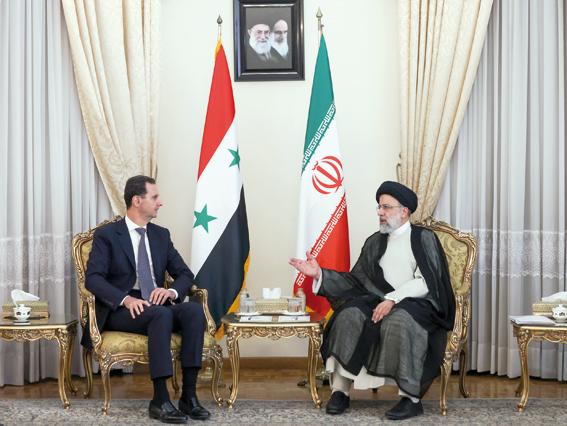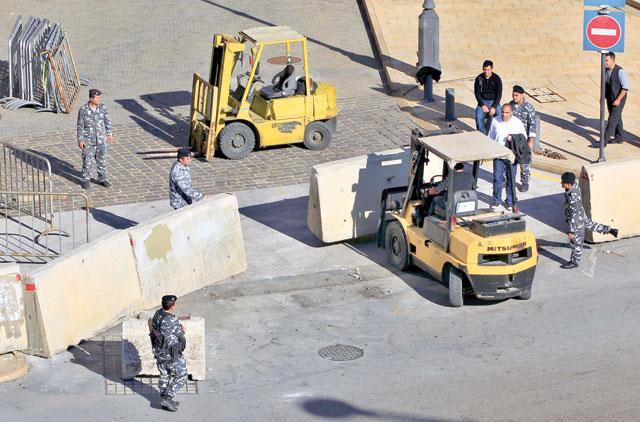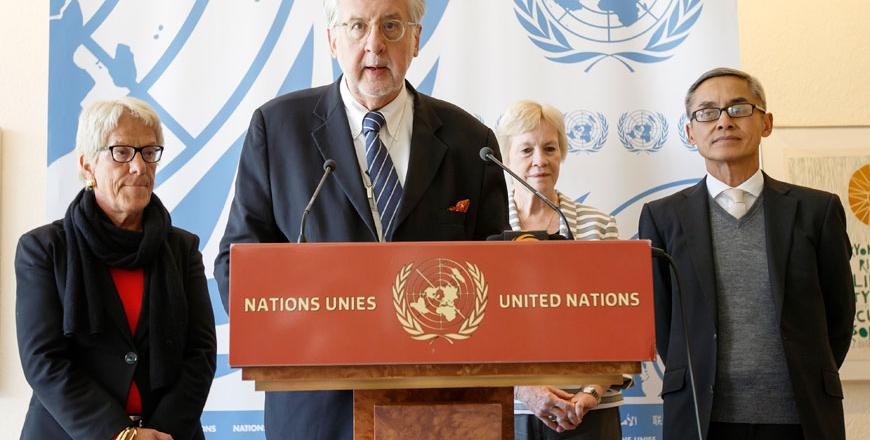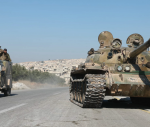You are here
Assad may win war but will preside over a ruined Syria
By AFP - Sep 11,2017 - Last updated at Sep 11,2017
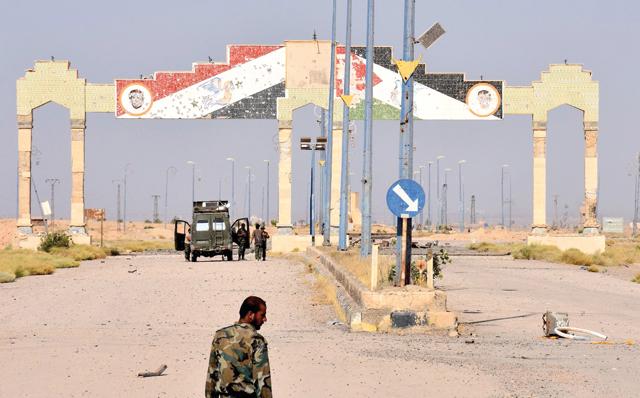
Syrian pro-government soldiers stand on a road on the outskirts of Deir Ezzor on Sunday as they continue to press forward with Russian air cover in the offensive against the Daesh group across the province (AFP photo)
BEIRUT — Syria's President Bashar Assad appears to be winning the war against those who sought his overthrow, but he will preside over a ruined country with an economy in tatters.
"Assad remains in charge of most of the population and most of the important territory, and I expect him to continue to rule most of Syria," said Aron Lund, a Syria expert with the Century Foundation think-tank.
"The war goes on, but in the larger strategic sense he has defeated those who sought to depose him," Lund told AFP.
The writing is on the wall even in the halls of the United Nations, where special envoy Staffan de Mistura last week bluntly urged Assad's opponents to be more pragmatic.
"Will the opposition be able to be unified and realistic enough and realise that they did not win the war?" he asked.
The comments drew ire from anti-government figures, who have long insisted that Assad must step down and cannot be part of any transitional government.
The head of the opposition High Negotiations Committee, Nasr Al Hariri, called them "shocking and disappointing".
But the opposition's demand for Assad's ouster looks increasingly unrealistic, as his regime finds itself in perhaps its strongest position since the eruption of the conflict in 2011.
His army controls the country's main cities and possesses a considerable advantage in terms of firepower, thanks to the support of allies Iran and Russia.
'Completely destroyed'
Over the past week, Syrian troops have made major advances in the east of the country, relieving two government-held enclaves in and around the city of Deir Ezzor that had been under siege by the Daesh extremist group since 2014.
That leaves the government in control of half of Syria's territory and two-thirds of its population, more than any other side in the complex war.
Kurdish-led forces hold around 23 per cent of its territory and Daesh 15 per cent, according to geographer and Syria expert Fabrice Balanche.
Just 12 per cent is held by other armed groups, most of it by Syria's former Al Qaeda affiliate and its allies.
But despite his territorial gains, Assad is likely to face low-level insurgencies for years to come, said Thomas Pierret, a Syria specialist at the University of Edinburgh.
"Assad will stay in power for a long time — but with a strong probability that there will be ongoing, endemic armed insurrections," Pierret told AFP.
"They will not threaten the central state directly, but they will be structurally threatening for a regime with other major weaknesses."
Assad's regime will also need to pick up the pieces in a country that has been ravaged by six years of brutal conflict that have left more than 330,000 people dead, millions displaced and public infrastructure across much of the country in ruins.
"He has definitely regained momentum and regained territory," said Maha Yahya of the Carnegie Endowment's Beirut-based Middle East Centre.
"But frankly, he's regaining control of a country that's completely destroyed. I don't know what winning the war really means in a context like this."
Problematic reconstruction
According to the World Bank, the conflict has cost the Syrian economy some $226 billion — about four times the country's gross domestic product in 2010.
The fighting has damaged or destroyed 27 per cent of Syria's housing stock and about half the country's medical and educational facilities.
About 85 per cent of the population lives below the poverty line and half are unemployed.
"In the current state, I don't think there will be a rebuilding of the country," said Jihad Yazigi, author of the weekly Syria Report.
With the cost of total reconstruction in Syria estimated to come to around $200 billion, Yazigi said it was more likely that medium-term rehabilitation would take place.
"There will be a period of relative economic improvement lasting around 18 months to two years, as the electricity is repaired in certain areas and oil and gas extraction could resume," he said.
Syria's financial institutions are not in a position to fund reconstruction efforts, as the assets of its 12 banks add up to a meagre $3.5 billion, according to Yazigi.
And foreign bodies that could foot the bill will refuse to do so after years of accusing the Damascus government of atrocities and war crimes.
"Those who could finance this reconstruction like Gulf states, the European Union, the World Bank — they have no intention of doing it," Yazigi said.
Related Articles
TEHRAN — Syrian President Bashar Assad met with Iran's supreme leader Ali Khamenei and President Ebrahim Raisi during a brief visit to Tehra
BEIRUT — Syrian President Bashar Assad's imminent victory in Aleppo will increase Syrian and Iranian influence in Lebanon, the leading Leban
GENEVA — Justice will catch up with Syrian President Bashar Assad even if he remains in power under a negotiated end to Syria's war, UN huma


